第70章
LETTERS 1872-73.MARK TWAIN IN ENGLAND.LONDON HONORS.ACQUAINTANCEWITH DR.JOHN BROWN.A LECTURE TRIUMPH."THE GILDED AGE"Clemens did, in fact, sail for England on the given date, and was lavishly received there.All literary London joined in giving him a good time.He had not as yet been received seriously by the older American men of letters, but England made no question as to his title to first rank.Already, too, they classified him as of the human type of Lincoln, and reveled in him without stint.Howells writes: "In England, rank, fashion, and culture rejoiced in him.
Lord Mayors, Lord Chief justices, and magnates of many kinds were his hosts."He was treated so well and enjoyed it all so much that he could not write a book--the kind of book he had planned.One could not poke fun at a country or a people that had welcomed him with open arms.
He made plenty of notes, at first, but presently gave up the book idea and devoted himself altogether to having a good time.
He had one grievance--a publisher by the name of Hotten, a sort of literary harpy, of which there were a great number in those days of defective copyright, not merely content with pilfering his early work, had reprinted, under the name of Mark Twain, the work of a mixed assortment of other humorists, an offensive volume bearing the title, Screamers and Eye-openers, by Mark Twain.
They besieged him to lecture in London, and promised him overflowing houses.Artemus Ward, during his last days, had earned London by storm with his platform humor, and they promised Mark Twain even greater success.For some reason, however, he did not welcome the idea; perhaps there was too much gaiety.To Mrs.Clemens he wrote:
To Mrs.Clemens, in Hartford:
LONDON, Sep.15, 1872.
Livy, darling, everybody says lecture-lecture-lecture--but I have not the least idea of doing it--certainly not at present.Mr.Dolby, who took Dickens to America, is coming to talk business to me tomorrow, though Ihave sent him word once before, that I can't be hired to talk here, because I have no time to spare.
There is too much sociability--I do not get along fast enough with work.
Tomorrow I lunch with Mr.Toole and a Member of Parliament--Toole is the most able Comedian of the day.And then I am done for a while.On Tuesday I mean to hang a card to my keybox, inscribed--"Gone out of the City for a week"--and then I shall go to work and work hard.One can't be caught in a hive of 4,000,000 people, like this.
I have got such a perfectly delightful razor.I have a notion to buy some for Charley, Theodore and Slee--for I know they have no such razors there.I have got a neat little watch-chain for Annie--$20.
I love you my darling.My love to all of you.
SAML.
That Mark Twain should feel and privately report something of his triumphs we need not wonder at.Certainly he was never one to give himself airs, but to have the world's great literary center paying court to him, who only ten years before had been penniless and unknown, and who once had been a barefoot Tom Sawyer in Hannibal, was quite startling.It is gratifying to find evidence of human weakness in the following heart-to-heart letter to his publisher, especially in view of the relating circumstances.
To Elisha Bliss, in Hartford:
LONDON, Sept.28, 1872.
FRIEND BLISS,--I have been received in a sort of tremendous way, tonight, by the brains of London, assembled at the annual dinner of the Sheriffs of London--mine being (between you and me) a name which was received with a flattering outburst of spontaneous applause when the long list of guests was called.
I might have perished on the spot but for the friendly support and assistance of my excellent friend Sir John Bennett--and I want you to paste the enclosed in a couple of the handsomest copies of the "Innocents" and "Roughing It," and send them to him.His address is "Sir John Bennett, Cheapside, London."Yrs Truly S.L.CLEMENS.
The "relating circumstances" were these: At the abovementioned dinner there had been a roll-call of the distinguished guests present, and each name had been duly applauded.Clemens, conversing in a whisper with his neighbor, Sir John Bennett, did not give very close attention to the names, applauding mechanically with the others.
Finally, a name was read that brought out a vehement hand-clapping.
Mark Twain, not to be outdone in cordiality, joined vigorously, and kept his hands going even after the others finished.Then, remarking the general laughter, he whispered to Sir John: "Whose name was that we were just applauding?""Mark Twain's."
We may believe that the "friendly support" of Sir John Bennett was welcome for the moment.But the incident could do him no harm; the diners regarded it as one of his jokes, and enjoyed him all the more for it.
He was ready to go home by November, but by no means had he had enough of England.He really had some thought of returning there permanently.In a letter to Mrs.Crane, at Quarry Farm, he wrote:
"If you and Theodore will come over in the Spring with Livy and me, and spend the summer you will see a country that is so beautiful that you will be obliged to believe in Fairyland.....and Theodore can browse with me among dusty old dens that look now as they looked five hundred years ago; and puzzle over books in the British Museum that were made before Christ was born; and in the customs of their public dinners, and the ceremonies of every official act, and the dresses of a thousand dignitaries, trace the speech and manners of all the centuries that have dragged their lagging decades over England since the Heptarchy fell asunder.I would a good deal rather live here if I could get the rest of you over."In a letter home, to his mother and sister, we get a further picture of his enjoyment.
To Mrs.Jane Clemens and Mrs.Moffett:
LONDON, Nov.6, 1872.